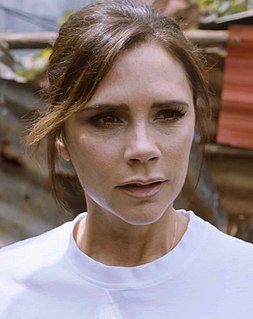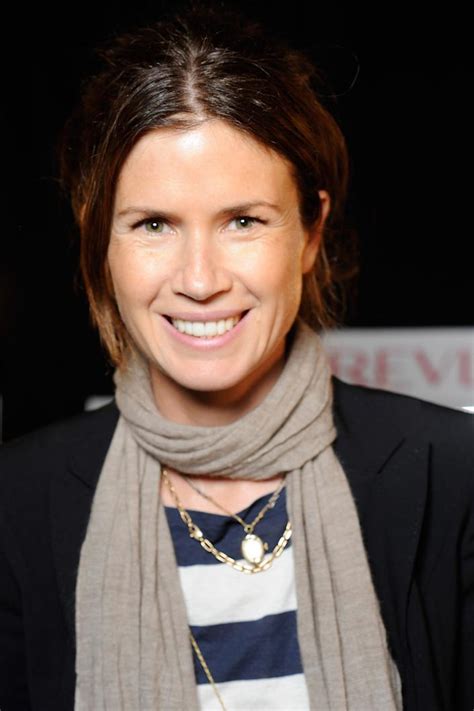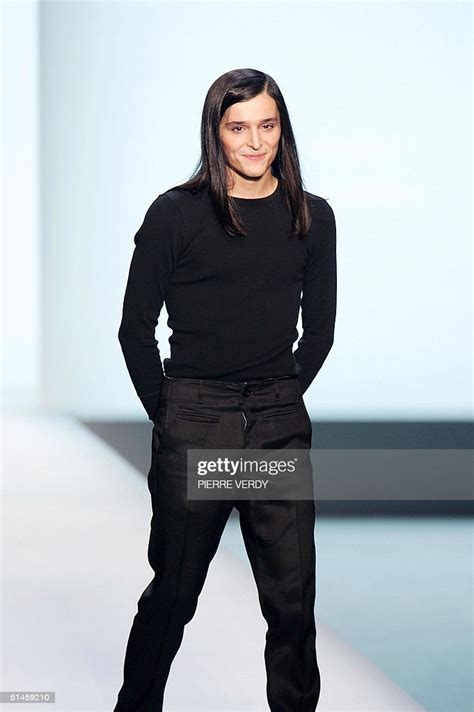A Quote by Victoria Beckham
The first dress that I wore in the Spice Girls, which everybody thought was a little black Gucci dress, was actually from Miss Selfridge - it wasn't a little black Gucci dress.
Related Quotes
I'm pretty damn obsessed with Gucci. The fashion. It's like a painting! The advertising is beautiful and I've actually never owned one piece of Gucci in my life and then I was in Paris with my husband for shows and we went to Gucci and I got the brown loafers, a boot and a couple sweaters - it's totally how I dress. And I love how they're articulating the girls. They're bohemian and whimsical.
I had a very down-to-earth product, my wrap dress, which was really a uniform. It was just a simple little cotton-jersey dress that everybody loved and everybody wore. That one dress sold about 3 or 4 million. I would see 20, 30 dresses walking down one block. All sorts of different women. It felt very good. Young and old, and fat and thin, and poor and rich.
The biggest thing is online shopping. So that you don't have to dress up, go down Bond Street or Rodeo or wherever, go and be intimidated by shop assistants to buy Gucci shoes or a Prada dress. You can just go online and, if it doesn't fit you, send it back. And I think that is the biggest, biggest difference, because that means everybody can do it.
I have very little fashion sense, and to tell you the truth, I give it very little thought. I dress to be as comfortable as I possibly can. Most of my clothing is either black, grey, or dark blue, and I don't really wear a lot of colours. But I do like jackets. I have a little bit of an obsession with them.
Jane was wearing a charcoal shift dress. The black dipped into a love V accented with a large black chiffon bow. A layer of delicate black lace peeked out from the bottom of her dress. Her long blond hair was pulled back tightly into a straight ironed ponytail. Her makeup was simple: coral blush on her cheeks and gunmetal shadow brushed under her blue eyes.




































